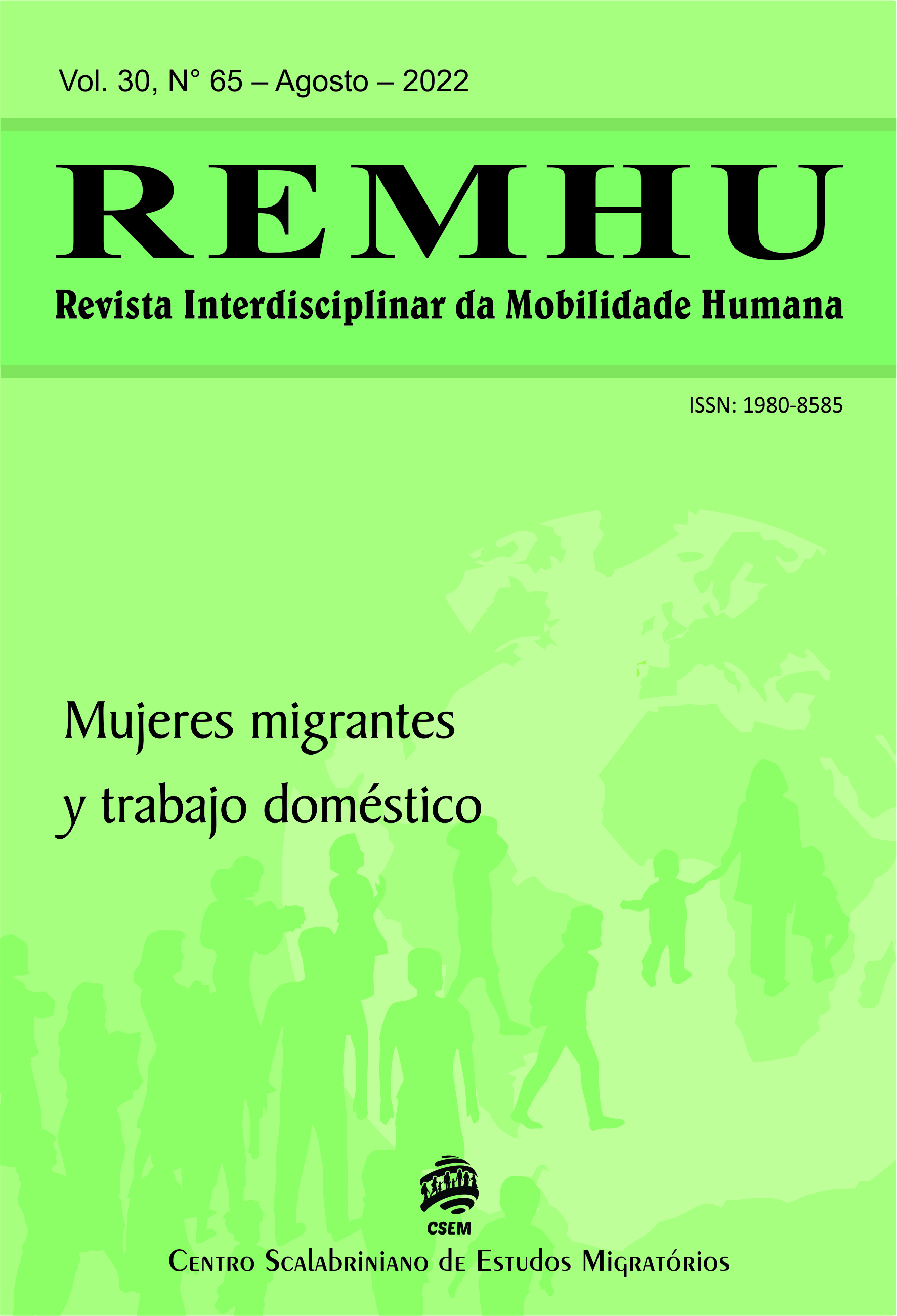Migration, Domestic Care Work and Public Policies on Long-Term Care in Spain
DOI:
https://doi.org/10.1590/1980-85852503880006506Palabras clave:
care work, migrations, welfare, precariousness, domestic service, Covid-19Resumen
This article explores the impact of the Covid-19 pandemic on
the labour conditions of migrant workers who provide care to elderly
and dependent persons in Spain. Using data from the Active Population
Survey, we analyse the effects of the health crisis on the precariousness of
this labour sector (measured through unemployment, underemployment
and temporary employment). The figures shed light on the degradation
of working conditions during the health crisis, the situation of social
vulnerability experienced by female workers and the absence of effective
policy responses to reverse this inequality during the pandemic. This
situation of subordination is structured around the connection between the
demand for care workers in private homes and the philosophy behind the
public welfare system. Special emphasis is given to the effect of cash transfer
programs in the process of the commodification of care.
Descargas
Publicado
Número
Sección
Licencia
Derechos de autor 2022 Revista Interdisciplinar da Mobilidade Humana

Esta obra está bajo una licencia internacional Creative Commons Atribución 4.0.
Los autores/as conservarán plenos derechos de autor sobre su obra y garantizarán a la revista el derecho de primera publicación, el cuál estará simultáneamente sujeto a la Licença Creative Commons do tipo atribuição BY , que permite a terceros la redistribución, con reconocimiento de autoría y publicación inicial en esta revista.
Los autores pueden autoarchivar sus manuscritos aceptados, publicarlos en blogs personales, repositorios institucionales y redes sociales académicas, así como publicarlos en sus redes sociales personales, siempre que se incluya la cita completa de la versión original de la revista.




